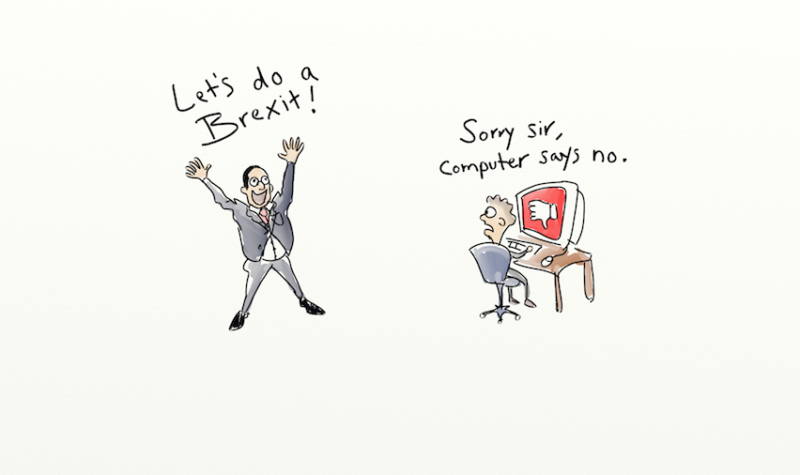
I recently read an article where mental health care professionals are looking into using big data to help them treat mental disorders. These people are smart enough to realize that they aren’t smart enough to unravel the complexities of what mental health issues exactly are and how they can best be treated. They figured out that, even though 2 patients might be diagnosed with the same mental disorder, that doesn’t mean they have the same causes or that the same therapies will be successful.
I see a parallel with our world leaders here. They diagnose countries and international relationships, something that I’d say is rather complex. And then they apply therapies to the issues they find. Austerity for economical deficiencies, airstrikes to thwart terrorism and border controls to solve the ‘refugee problem’. Uptil now with little success in any of these areas. Austerity measures has by now been condemned by the IMF itself as not being helpful, the airstrikes as a response to terrorist attacks is not supported by science as a the best method to defeat it and border controls lead to inhumane treatment of people who are just trying to find a safe place to live. The list of bad decisions with disastrous consequences just goes on and on. And it seems like few are even trying to learn from past mistakes. The neoliberalist camp still believes that doing more of the same thing will eventually lead to a solution. That’s like believing throwing water at a drowning man will eventually save his life.
So here’s a radical idea. What about supporting our leaders in their tough decisions with big data? What if we train an AI (artificial intelligence) to see the patterns in the consequences of political decision making and let them become advisors to our leaders? In my opinion, this would be a sane thing to do. I am not talking about putting a computer in charge of our society, at least not yet. But having an AI, which has no vested interests, produce reports on the expected impacts of political decisions would be a boon for all of us.
Another upside of AI supported governance is that it becomes easier for civilians to participate in the governance process. The AI could be made available to the public. Ordinary people like you and me can then make propositions and run them through the AI. Those with positive impact could then be automatically forwarded to our leaders. It would also be educational for civilians to play around with this. We could throw anything at it and get a prediction of what the impact could be.
And even if government isn’t willing to go there, we could implement something like this ourselves if we find skilled people willing to do it. And then we can report to our governments with the projections about their governance. Imagine we would have fed the Brexit choice into this thing and it would have made an accurate prediction of the mess it has generated.
I know I am probably opening a can of worms here but there might be a gem at the bottom of it.
What say you?
Also published on Medium.



Hi,
I would say 100% the opposite. All “mental illness” is exactly the same. A mismatch between with is perceived and what is expected. As an NLP practitioner we have techniques to align this and give back control
Yes for those who have lost total control this would be very hard to achieve but the majority can be guided in a gentle way to recovery.
What does not happen is overnight miracle cures. Like a plant, humans too need time and space and nurture to evolve.